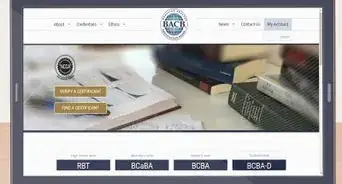This article was co-authored by Jill Newman, CPA. Jill Newman is a Certified Public Accountant (CPA) in Ohio with over 20 years of accounting experience. She has experience working as an accountant in public accounting firms, nonprofits, and educational institutions, and has also honed her communication skills via an MA in English, writing jobs, and as a teacher. She received her CPA from the Accountancy Board of Ohio in 1994 and has a BS in Business Administration/Accounting.
There are 19 references cited in this article, which can be found at the bottom of the page.
This article has been viewed 93,422 times.
An auditor is responsible for reviewing an organization's financial information and assess the company's internal controls to prevent theft and data manipulation.[1] Auditors and accountants perform similar duties.[2] However, while an accountant might prepare financial statements, an auditor's job is to evaluate those financial statements and report back to the organization.[3] Auditors need a particular set of skills, education, and experience. Learning how to become an auditor can help get you started in this lucrative and rewarding career.
Steps
Earning an Education in Auditing
-
1Take relevant high school courses. If you're interested in pursuing a career as an auditor, it may be helpful to take relevant courses in high school. This can help prepare you for future college-level course work, and may also help you determine if auditing is, in fact, something you want to make a career out of. Relevant courses that may be offered in high school include:
-
2Apply to college. In order to become an auditor, you'll need a college education. Most companies and organizations require at least a bachelor's degree, while some prefer applicants who have gone on to earn a master's degree. Some employers will hire graduates who hold an associate's degree, but these candidates must have extensive bookkeeping and accounting experience. Candidates who hold an associate's degree are typically hired as junior accountants, and must work their way up to more advanced accounting or auditing positions. Typically, though, to pursue a career as an auditor, you will need a bachelor's degree.[8]Advertisement
-
3Participate in an internship. Internships are not required, but they provide great hands-on experience and may help you make connections in the industry. You can find internships by searching for auditor or accountant internships in your area, or by seeking out internship opportunities through specific employers like the Consumer Financial Protection Bureau.[11]
- Consider doing an internship over the summer when you're not in school.
-
4Graduate from college. Whether you intend to pursue a master's degree after graduation or directly enter the workforce, you'll need to do well in college and earn a bachelor's degree. Most bachelor's degrees can be earned in four years or fewer, while some programs may offer a joint bachelor's and master's degree that can be earned in a five or six year period.
-
5Consider earning a master's degree. Many companies do not require auditors to have a master's degree. However, some larger firms may desire an auditor with a master's degree. If you decide to pursue a master's degree, you'll want to find a program that specializes in accounting, economics, or finance.[12]
- If you want to advance your career in the field of auditing, then you will need to become certified as a CIA (Certified Internal Auditor) or CPA (Certified Public Accountant). To earn a CIA certification, you will need to have a combination of education and experience. To earn a CPA certification, you will need 150 semester hours of coursework, which is equivalent to a 5-year accounting degree.
-
6Try to learn a second language. It's not necessarily a requirement at all firms, but learning a second language will help set you apart from other auditors in the job market. If you decide you want to work for a government agency or work in an area that has a lot of bilingual speakers, learning a second language may actually be a requirement.[13]
- When choosing a second language to learn, focus on what would be most pragmatic for your field and your location. For example, if you plan to work in southern California, New Mexico, or Texas, being able to speak Spanish would be a valuable asset for most financial firms. If you want to work in a state in the northeastern United States, knowing French may be beneficial due to the close proximity to the Canadian border.
Getting Certified
-
1Consider getting certified. Though it is not a strict requirement to have certification prior to becoming an auditor, many larger organizations do want auditors who have certification. There are a number of different certification boards and processes, including Certified Public Accountant (CPA), Certified Internal Auditor (CIA), Certified Information Systems Auditor (CISA), Certified Government Auditing Professional (CGAP), and Certified Fraud Examiner (CFE).[14]
- Of all the types of certification, the CPA is generally considered the most credible and desirable for auditors to have. That credibility is important, given that auditors work with employees, managers, executives, and members of the board, as well as external agencies and representatives.[15]
- CPAs tend to make up to 10 percent more than non-CPAs, and typically have more job security.[16]
- Be aware that almost all states require CPAs to engage in some form of continuing education (called Continuing Professional Education) to maintain the CPA license.[17] Most states follow the CPE standards of the National Association of State Boards of Accountancy (NASBA) and the American Institute of Certified Public Accountants (AICPA), which is to earn 40 hours of CPE per year.
-
2Ensure that you qualify. The National Association of State Boards of Accountancy (NASBA) offers an Advisory Evaluation to ensure that all prospective candidates qualify to take the Uniform CPA Examination. The Advisory Evaluation determines whether a prospective candidate has sufficient educational preparation for the Uniform CPA Examination and provides guidance on areas of study that the candidate may need to improve prior to taking the Exam. The Advisory Evaluation is important, as each state has its own specific requirements, including requirements that govern a candidate's education level.[18]
- After passing the exam, some states mandate a minimum of one year of public accounting work experience before the CPA license will be granted. Other states permit different types of work experience to stand in for the minimum requirement.[19]
- Candidates who earned an education in the United States must submit a $100 fee and an official copy of all college transcripts for the Advisory Evaluation. Not all NASBA jurisdictions offer the Advisory Evaluation. It is primarily offered in Colorado, Delaware, Georgia, Indiana, Louisiana, Massachusetts, Michigan, Missouri, Nebraska, New Hampshire, Pennsylvania, Puerto Rico, Utah, and Washington. If you do not live in a corresponding jurisdiction, you must contact the Board of Accountancy in your home state to determine where you can have the Advisory Evaluation performed.[20] Keep in mind that Advisory Evaluation is optional. Check your state’s requirements for obtaining a CPA license to determine if you need to do this.
- Candidates who earned an education through an international institution must submit a $200 fee and an official copy of all college transcripts for the Advisory Evaluation. Contact your local Board of Accountancy to have the Advisory Evaluation performed.[21] This report is used for professional examination and licensure by the Boards of Accountancy.[22]
-
3Understand the Exam structure. The exam consists of four separate sections: Auditing and Attestation (AUD), Financial Accounting and Reporting (FAR), Regulation (REG), and Business Environment and Concepts (BEC). The AUD and FAR sections take four hours each, and the REG and BEC sections take up to three hours each. Each section is graded on a scale from zero to 99, with a minimum score of 75 required in order to pass.[23]
- Content and Skill Specification Outlines (CSOs/SSOs) address the content covered in each section of the Exam, and are available online at the American Institute of CPAs (AICPA) website.[24]
-
4Study for the Exam. The Exam is rather extensive in both the scope of material covered and the time it takes to prepare for and take the Exam. Most candidates spend approximately 500 hours total studying for the Uniform CPA Exam, though the total study time will, of course, vary from one person to another.[25] Many candidates choose to take a CPA preparation class through local or national institutions, while others prefer to study alone. If you do study on your own, plan on studying for one to three hours every day for several months leading up to each section of the Exam.[26] You may be eligible for a CPA prep class as an intern or new hire, and you may even receive bonus for passing the exam the first time you take it.
- The FAR section covers planning and reviewing, internal controls, obtaining and making records of information, and preparing communications between auditor/accountant and the organization. This section is generally considered the most difficult, and generally takes up to 180 hours of planning and studying to adequately prepare.[27]
- The AUD section is difficult, but generally considered easier if taken after the FAR section. The AUD covers the standards of financial statements, the content required within a financial statement, and how to account and report for a variety of different employers. It typically takes approximately 130 hours of planning and study time.[28]
- The REG section addresses ethics and professional responsibility, business law, and tax and accounting procedures. It also takes approximately 130 hours of planning and study time.[29]
- The BEC section is generally considered one of the easiest of the four sections. It addresses business structure, economic concepts, financial management, and information technology. The BEC is multiple-choice in format and takes upwards of 100 hours of planning and studying to prepare for the Exam.[30]
-
5Schedule and take the Exam. The Exam is administered by Prometric and is offered eight months out of the year: January and February, April and May, July and August, and October and November. It can be taken at one of over 300 test centers across the United States, and internationally in Bahrain, Brazil, Japan, Kuwait, Lebanon, and the United Arab Emirates.[31]
- The AICPA recommends scheduling each test session a minimum of 45 days before the Exam.[32]
- The NASBA charges a total of $729.08 to take all four sections of the Exam. There is also an initial application fee that applies to all first-time candidates, and that fee ranges from $30 to $200, depending on where the candidate resides and will be taking the Exam.[33]
- The four sections of the Exam do not have to be taken at once. This would be exceedingly difficult, given the amount of preparation time required for each section. However, most states require candidates to take and successfully pass all remaining sections within 18 months of passing the first section.[34]
-
6Pay your annual dues. Having a membership with the American Institute of CPAs (AICPA) is recommended, but it is optional. To maintain your membership, you must pay annual dues to the AICPA. The amount of a member's dues vary depending on the level of membership and the CPA's primary industry. For regular members, the dues requirements are as follows:
- Public accounting, law, and consulting partner/shareholder/owner/sole practitioner - $465[35]
- Public accounting, law, and consulting staff - $275[36]
- Business and industry president/CEO/COO/CFO/officer - $465[37]
- Business and industry management/staff/internal auditor - $275[38]
- Education faculty/administration - $275[39]
- Government employee at the federal/state/local/international level - $275[40]
-
7Maintain continuing education requirements. If you've earned your CPA certification, you'll need to engage in Continuing Professional Education (CPE) every year. It is recommended that CPAs document all relevant CPE experience to keep track of their progress. The reporting period for having met the CPE requirements begins January 1 of each year.[41]
- In most states, you will need to abide by the CPE requirements of the National Association of State Boards of Accountancy (NASBA) and the American Institute of Certified Public Accountants (AICPA). These requirements state that members must earn 120 hours (minimum of 20 hours per year) over a rolling three-year renewal period.[42]
- College courses count towards CPE hours. The number of relevant CPE hours is determined by multiplying the number of semester hours by 15, or if the college uses the quarter system, multiplying the number of quarter hours by 10.[43]
- A number of professional associations offer programs that count towards CPE hours. The number of relevant CPE hours is determined by multiplying the number of continuing education units taken through that association by 10.[44]
- For programs that do not have a predetermined number of hours, the number of relevant CPE hours is determined by dividing the number of minutes actually spent in the program by 50.[45]
- CPE hours are documented by keeping track of the class or program's sponsor, the title and description of the class/program's content, the dates and location of that class/program, and the number of CPE contact hours earned from that class or program.[46]
- You will be required to submit all of your certificates and other documentation verifying that you have obtained the required 120 hours of CPE. You will also need to total these hours by category.
Working as an Auditor
-
1Embody the desired qualities. Though each firm's needs may be slightly different, there are some general skills and characteristics that are deemed desirable for auditors to have. Those qualities and skills include:
-
2Choose your desired industry. There are many industries in which an auditor may work. Auditors typically work alone in an office, though some work at home or on teams with other auditors and accountants.[55] The primary industries auditors work in are, in descending order of employment percentages:
-
3Write a strong resume. Prospective auditors looking for jobs will need to put together a strong resume. Some basic resume guidelines apply, such as using a standard 8.5 by 11 inch piece of paper with a simple, easy to read font (like Times New Roman). But there are some specific attributes that a prospective auditor should include in a resume. These include:
- Listing relevant coursework, including any classes that taught skills which were not derived from previous employment experience
- Showing quantifiable results from your past work experience - for example, detailing how much of an organization's operating budget did you control, how much overtime pay your cost-reducing initiatives saved, or how much (in percentage) company productivity increased after your employment
- Emphasizing how, specifically, your degree sets your education apart from other candidates' educational backgrounds
- Using relevant industry terms and phrases
- Detailing your achievements and accomplishments
-
4Search for auditor jobs. There are many resources available online for an auditor seeking employment. In addition to traditional job websites like Indeed and Monster, there are a number of professional organizations for auditors that post job announcements online. The AICPA offers a number of career resources through their website, including career opportunities at the AICPA and the Official Job Board of the AICPA.[60]
-
5Prepare for an interview. The financial world is much more fast-paced and driven than many other public sector jobs, and auditing is no exception. Many employers want to ensure that entry-level employees fresh out of school will be able to withstand the stressful work environment. To prepare for the interview, you should be well-versed in financial news and capable of handling stressful situations, all of which may be tested at some point during the pre-employment interview.[61]
- Read financial publications, and be prepared to talk about those publications. Some experts recommend reading The Wall Street Journal and Financial Times to gain a general knowledge of current events and issues relevant to the financial industry.[62]
- Brush up on financial concepts. The employer conducting the interview may quiz you on your knowledge of relevant concepts and your ability to make hypothetical decisions based on core concepts and financial models.[63]
- Be prepared to prove your math skills during the interview. Not every employer will expect you to perform calculations during the interview, but it's not unheard of in the financial world.[64]
- Ask your own thought-provoking questions. To do this, you may need to conduct a little research into the company's history, business model, and business practices. Don't ask "gotcha" questions, just form a sincere inquiry that will show that you've researched the company and have a genuine interest in learning more about it.[65]
-
6Make professional connections. Networking is an important part of any career, and auditing is no exception. As you build your resume and seek out new employment opportunities, it's important that you remain aware of your professional network to grow and maintain your circle of connections.[66]
- Expand your group of professional connections to include both superiors and inferiors. Your peers are a good start, but a diverse network of connections is important in any job search.[67]
- Always carry business cards. You never know when you might meet a potential connection, including at social events.[68]
- Be honest and upfront about what you're looking for professionally, and what you need your connections to do. If you need a recommendation, ask for one. If you need someone to set up an interview, see if anyone can help you with that.[69]
- Always thank people for their time and assistance. Whether it's a prospective employer who granted you an interview, a former employer who gave you a glowing recommendation, or a professional contact who gave you a tip on an upcoming job announcement, always show your gratitude to everyone in your professional network. And any time you can, offer to help others out who are a part of your network.[70]
Expert Q&A
-
QuestionIs math a required subject for becoming an auditor?
 Jill Newman, CPAJill Newman is a Certified Public Accountant (CPA) in Ohio with over 20 years of accounting experience. She has experience working as an accountant in public accounting firms, nonprofits, and educational institutions, and has also honed her communication skills via an MA in English, writing jobs, and as a teacher. She received her CPA from the Accountancy Board of Ohio in 1994 and has a BS in Business Administration/Accounting.
Jill Newman, CPAJill Newman is a Certified Public Accountant (CPA) in Ohio with over 20 years of accounting experience. She has experience working as an accountant in public accounting firms, nonprofits, and educational institutions, and has also honed her communication skills via an MA in English, writing jobs, and as a teacher. She received her CPA from the Accountancy Board of Ohio in 1994 and has a BS in Business Administration/Accounting.
Financial Advisor You will be required to take finance and accounting classes when earning an accounting or auditing degree, which will have math functions. There are also statistical analyses required as an auditor, so math courses are recommended. They may not be required. There may be great latitude available to meet the credit requirements, depending on your university.
You will be required to take finance and accounting classes when earning an accounting or auditing degree, which will have math functions. There are also statistical analyses required as an auditor, so math courses are recommended. They may not be required. There may be great latitude available to meet the credit requirements, depending on your university. -
QuestionCan I post debtors information on social media warning other companies not to deal with them?
 Jill Newman, CPAJill Newman is a Certified Public Accountant (CPA) in Ohio with over 20 years of accounting experience. She has experience working as an accountant in public accounting firms, nonprofits, and educational institutions, and has also honed her communication skills via an MA in English, writing jobs, and as a teacher. She received her CPA from the Accountancy Board of Ohio in 1994 and has a BS in Business Administration/Accounting.
Jill Newman, CPAJill Newman is a Certified Public Accountant (CPA) in Ohio with over 20 years of accounting experience. She has experience working as an accountant in public accounting firms, nonprofits, and educational institutions, and has also honed her communication skills via an MA in English, writing jobs, and as a teacher. She received her CPA from the Accountancy Board of Ohio in 1994 and has a BS in Business Administration/Accounting.
Financial Advisor No you cannot post information on social media where anyone can view it. Under the Fair Debt Collection Practices Act, Under Section 805(b) of the FDCPA, it's illegal to reveal the existence of a debt to a third party. What's more, Section 806(3) prohibits publishing "a list of consumers who allegedly refuse to pay debts." Those are especially important lessons for collectors in the social media context, where a post on Facebook, Twitter, or Tumblr can instantly be viewed by others - and especially by consumers' social connections.
No you cannot post information on social media where anyone can view it. Under the Fair Debt Collection Practices Act, Under Section 805(b) of the FDCPA, it's illegal to reveal the existence of a debt to a third party. What's more, Section 806(3) prohibits publishing "a list of consumers who allegedly refuse to pay debts." Those are especially important lessons for collectors in the social media context, where a post on Facebook, Twitter, or Tumblr can instantly be viewed by others - and especially by consumers' social connections.
References
- ↑ http://www.investopedia.com/articles/financial-careers/08/career-auditor-auditing.asp
- ↑ http://www.bls.gov/ooh/business-and-financial/accountants-and-auditors.htm#tab-2
- ↑ http://www.online-accounting-degrees.net/faq/what-is-difference-between-an-accountant-and-an-auditor/
- ↑ http://www.investopedia.com/articles/financial-careers/08/career-auditor-auditing.asp
- ↑ http://www.investopedia.com/articles/financial-careers/08/career-auditor-auditing.asp
- ↑ http://www.investopedia.com/articles/financial-careers/08/career-auditor-auditing.asp
- ↑ http://www.investopedia.com/articles/financial-careers/08/career-auditor-auditing.asp
- ↑ http://www.bls.gov/ooh/business-and-financial/accountants-and-auditors.htm#tab-4
- ↑ http://www.bls.gov/ooh/business-and-financial/accountants-and-auditors.htm#tab-4
- ↑ http://www.investopedia.com/articles/financial-careers/08/career-auditor-auditing.asp
- ↑ http://www.consumerfinance.gov/students-and-recent-graduates/
- ↑ http://www.investopedia.com/articles/financial-careers/08/career-auditor-auditing.asp
- ↑ http://www.tbs-sct.gc.ca/ip-pi/job-emploi/index-eng.asp
- ↑ http://www.investopedia.com/articles/financial-careers/08/career-auditor-auditing.asp
- ↑ http://www.investopedia.com/articles/financial-careers/08/career-auditor-auditing.asp
- ↑ http://www.investopedia.com/articles/investing/111014/how-become-cpa.asp
- ↑ http://www.bls.gov/ooh/business-and-financial/accountants-and-auditors.htm#tab-4
- ↑ https://www.thiswaytocpa.com/exam-licensure/state-requirements/
- ↑ http://www.investopedia.com/articles/investing/111014/how-become-cpa.asp
- ↑ https://nasba.org/stateboards/
- ↑ https://nasba.org/stateboards/
- ↑ https://www.nasba.org/products/nasbainternationalevaluationservices/services-and-fees/
- ↑ http://www.investopedia.com/articles/investing/111014/how-become-cpa.asp
- ↑ http://www.aicpa.org/BECOMEACPA/CPAEXAM/EXAMINATIONCONTENT/Pages/default.aspx
- ↑ http://www.investopedia.com/articles/investing/111014/how-become-cpa.asp
- ↑ http://www.investopedia.com/articles/investing/111014/how-become-cpa.asp
- ↑ http://www.investopedia.com/articles/investing/111014/how-become-cpa.asp
- ↑ http://www.investopedia.com/articles/investing/111014/how-become-cpa.asp
- ↑ http://www.investopedia.com/articles/investing/111014/how-become-cpa.asp
- ↑ http://www.investopedia.com/articles/investing/111014/how-become-cpa.asp
- ↑ http://www.investopedia.com/articles/investing/111014/how-become-cpa.asp
- ↑ http://www.investopedia.com/articles/investing/111014/how-become-cpa.asp
- ↑ http://www.investopedia.com/articles/investing/111014/how-become-cpa.asp
- ↑ http://www.bls.gov/ooh/business-and-financial/accountants-and-auditors.htm#tab-4
- ↑ https://www.aicpa.org/membership/dues.html
- ↑ https://www.aicpa.org/membership/dues.html
- ↑ https://www.aicpa.org/membership/dues.html
- ↑ https://www.aicpa.org/membership/dues.html
- ↑ https://www.aicpa.org/membership/dues.html
- ↑ https://www.aicpa.org/membership/dues.html
- ↑ http://www.aicpa.org/Membership/Requirements/Pages/membership-CPE-requirements.aspx
- ↑ https://www.nasbaregistry.org/cpe-requirements
- ↑ http://www.aicpa.org/Membership/Requirements/Pages/membership-CPE-requirements.aspx
- ↑ http://www.aicpa.org/Membership/Requirements/Pages/membership-CPE-requirements.aspx
- ↑ http://www.aicpa.org/Membership/Requirements/Pages/membership-CPE-requirements.aspx
- ↑ http://www.aicpa.org/Membership/Requirements/Pages/membership-CPE-requirements.aspx
- ↑ http://www.investopedia.com/articles/financial-careers/08/career-auditor-auditing.asp
- ↑ http://www.bls.gov/ooh/business-and-financial/accountants-and-auditors.htm#tab-4
- ↑ http://www.bls.gov/ooh/business-and-financial/accountants-and-auditors.htm#tab-4
- ↑ http://www.bls.gov/ooh/business-and-financial/accountants-and-auditors.htm#tab-4
- ↑ http://www.investopedia.com/articles/financial-careers/08/career-auditor-auditing.asp
- ↑ http://www.bls.gov/ooh/business-and-financial/accountants-and-auditors.htm#tab-4
- ↑ http://www.bls.gov/ooh/business-and-financial/accountants-and-auditors.htm#tab-4
- ↑ http://www.investopedia.com/articles/financial-careers/08/career-auditor-auditing.asp
- ↑ http://www.bls.gov/ooh/business-and-financial/accountants-and-auditors.htm#tab-3
- ↑ http://www.bls.gov/ooh/business-and-financial/accountants-and-auditors.htm#tab-3
- ↑ http://www.bls.gov/ooh/business-and-financial/accountants-and-auditors.htm#tab-3
- ↑ http://www.bls.gov/ooh/business-and-financial/accountants-and-auditors.htm#tab-3
- ↑ http://www.bls.gov/ooh/business-and-financial/accountants-and-auditors.htm#tab-3
- ↑ http://www.aicpa.org/Career/JobBoards/Pages/JobBoards.aspx
- ↑ http://www.investopedia.com/articles/financialcareers/08/beat-tough-interviews.asp
- ↑ http://www.investopedia.com/articles/financialcareers/08/beat-tough-interviews.asp
- ↑ http://www.investopedia.com/articles/financialcareers/08/beat-tough-interviews.asp
- ↑ http://www.investopedia.com/articles/financialcareers/08/beat-tough-interviews.asp
- ↑ http://money.usnews.com/money/careers/slideshows/the-8-best-questions-to-ask-a-job-interviewer
- ↑ http://www.roberthalf.com/job-seekers/career-center/networking/networking-tips
- ↑ http://www.roberthalf.com/job-seekers/career-center/networking/networking-tips
- ↑ http://www.roberthalf.com/job-seekers/career-center/networking/networking-tips
- ↑ http://www.roberthalf.com/job-seekers/career-center/networking/networking-tips
- ↑ http://www.roberthalf.com/job-seekers/career-center/networking/networking-tips
About This Article
To become an auditor, you'll need to be detail oriented, a good communicator, and have excellent math and analytical skills. If you're still in school, focus on taking classes in math, accounting, economics, and finance, which will help prepare you for the field. You might also want to apply for an internship with an auditor or accountant in your area to get an idea of what the job is like. Then, if you think becoming an auditor is right for you, you'll need to earn a bachelor's degree in accounting or a related field. For more tips from our Accountant co-author, like how to get certified as an auditor, read on!



















-Step-9.webp)





















-Step-9.webp)






































